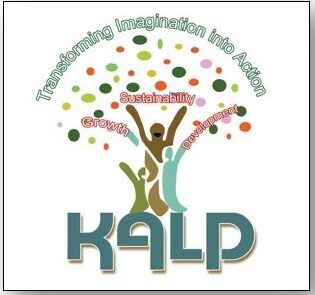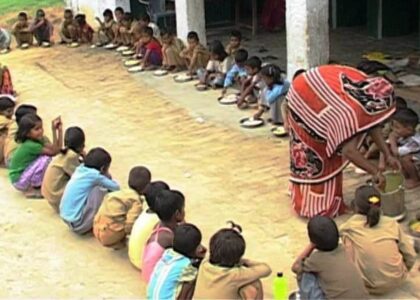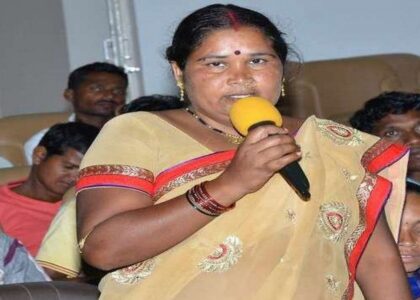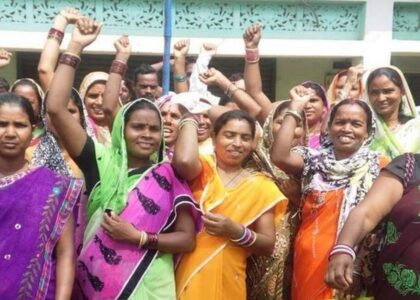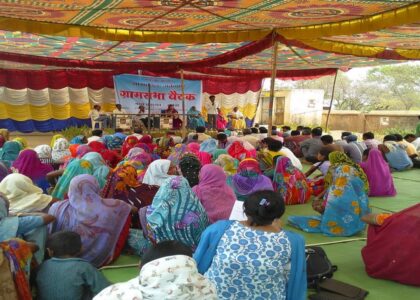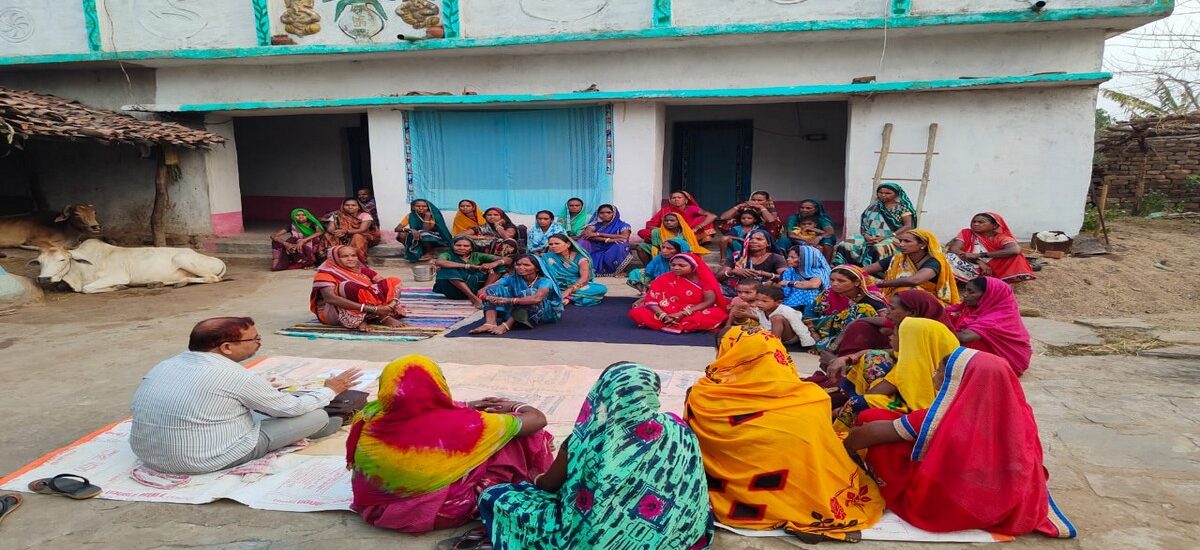
The Unity – Women Empowerment
Village “Sandi” is dependent village of Devtarai Gram Panchayat residing in the forest. One has to take 3 km road to reach in to the main village. Villagers has to come 22 km ahead if they want to come to the kasdol block. There are 96 households in the village having population of 514. During discussion it was known that 150 years back their ancestors choose this place for settlement. Village is dominated by 90% Gond tribe followed by Chauhan, pardhi, yadav etc. There is one anganwadi and one primary school. Children can attain middle school up to the 8th standard for further education children has to go to basinpali or chikhali which are 10 km away from their village. Rain fed agriculture is their primary livelihood followed by collection of NTFP, NREGA and seasonal migration. Rate of migration is quite high in this village. Every year out of 96 households at least one or two members from 25 to 30 households are migrating all over India. Mostly these families work on brick link or as daily wage earners. Tribes known as pardhi migrates along with their families in the season.
In 2017 organization started doing its interventions through sustainable livelihood program. Formation of village development committee, self-help groups, meetings, capacity building trainings, inputs to farmers for ecological farming, and other various activities were being implemented to support the livelihood of the farmers and the women. In his first role, organization was working in close, regular contact with communities on number of related issues. In his second role, with experience of capacity building conducted orientation of committee members about the process of village development committee and its monitoring including the roles of members. All the stake holders were benefited from various capacity building. Lastly, he could contribute to the collection of information relevant to project activities. During this process, 3 self-help groups (Jagruti, Tulsi, and Shanti) has been formed. All together there are 33 women in these three groups. Two groups (Tulsi and Shanti) have received support for goats and hens under agriculture allied activities. Whereas bank has sanctioned loan one lakh rupees of to jagruti SHG, which was used by the members for the personal purpose.During one SHG meeting women raised the question of selling liquors in the village. Well selling and buying liquor is quite common and acceptable in trible community. And the same question was also raised in other two groups. Initially it was thought as a simple issue, but when this was raised again and again by the women sensing anxiety Mr. Gorelal community mobiliser understood the serious ness of it. During discussion it was known that any other trible culture selling of mahua liquor was common. This liquor was sold only during festival or any village or other ceremony not effecting seriously or causing any social harms.
But recent 3-4 years back this picture has changed. In village some families apart from Gond community started selling liquor on daily basis. This became their means of business. Looking at their flourishing business some gond families came forward and started selling liquor on daily basis. And the problem begins there. The scene of selling liquor has become a phenomenon in such small village for quite some time. The sight of men selling liquor in the house has become an inseparable part of the landscape. which has drastically changed picture within the family, in the village and ultimately of the community. However, it was not always a happy family affair. Selling liquor, either in public places or at home, became a cause of family discord: i) husbands suspected their wives ii) some husbands drank excessively because liquor was available for free at home, and iii) the family environment became unfavorable for the school going and growing up children. Looking at them young children and boys also started to drink. On the other hand, these dunkers started sitting in chowks and muhalla’s, women and girls were feeling uncomfortable by passing through road. Sense of insecurity and fear has built up while fetching up the water. Daily fights and filthy language in the chowks became common. In short those who were drinking their family was experiencing loss of wealth, health, harmony, and social status. In short period of time whole environment of the village became insure and dangerous. women and children were the most sufferers. This environment also started to affect on SHG and other project activities. During SHG meetings women were restless, they were not able to pay proper attention in the group due to family problems, absence from meeting, and sometimes on contribution.
Gorelal, behind the curtain effectively mobilized the women for collective action in coordination with all three groups. Gave them systematic support and awareness creation about their strength, unity and after words results. This he was doing without disturbing other activities and not allowing male members to know. As per planning, one day members of these group came together to solve this problem. Belsundari, sagari and Santoshi members of three group came forward and called one female member from each household in the meeting. After lots of discussion on number of problems arised due to liquor and its consequences with little heated argument and lots of understanding it was decided that, all the women who are not a member of any SHG group should be included in the group. And the result was emerged of big women base organisation representing each household. After few meetings CBO realised their strength and importance to work together. New leadership emerged to take the initiative. In 2021 CBO members took the historical decision to “Ban the liquor” well this was easy to implement because there are many women in the group whose husband either was preparing the liquor at home or was consuming it. In these cases, at certain point, it was felt that banning the liquor will not be possible. Each woman in the group is a mother, and being a mother and looking at the children’s future women decided to take strong decision to ban the liquor. After this there was no looking back. Each CBO member had word with their husband and other elderly member in the house. They shared their concern over livelihood, children’s future and the number of problems that has occurred in the family and in the village. Now every day in the evening, in rotation CBO members along with big sticks and torch takes round in the village to check whether anybody producing the liquor, or anyone who has consumed it is sitting in chow or mohalas. 100/- Rs. fine has been decided for any person who will produce, consume or sell the liquor. They do not hesitate to beat the person if after drink he is found doing mischief or using bad language, or sits in public places. This punishment includes their own family members. Even in some incident they have fined the person.
Now the atmosphere of the village is different. People who were producing the liquor has stopped their production. Now women do not feel sacred or insecure while fetching the water or moving on the road as no drunker sits in chowk or mohalla. Anti-social elements do not dare to spoil the environment of the village. This was not overnight change women has done lots of struggle to come to this stage. Their strong and unity has brought them here.
Challenges:
Two biggest challenges were faced during this process:
➢ Women has to deal either with their husband or family member to get the support for this campaign.
➢ Gorelal has be very care as he was supporting women and has to manage their male members for other project activities.
Impact
- Emergence of strong CBO and leadership.
- Alcohol abuse in the areas had reduced drastically.
- Village atmosphere is cool and normal.
- Women realized their strength as a village institution.





